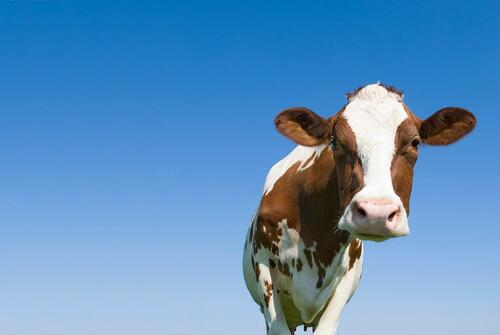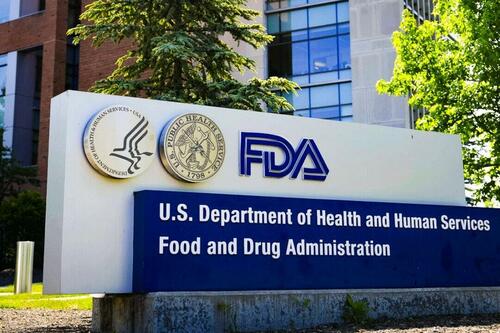US Steps Up Monitoring As FDA Warns Bird Flu Found In Pasteurized Milk From Grocery Stores
Dairy cattle moving between states must be tested for the bird flu virus, U.S. agriculture officials said Wednesday as they try to track and control the growing outbreak.
AP reports that the federal order was announced a day after health officials said they had detected inactivated remnants of the virus, known as Type A H5N1, in samples taken from milk during processing and after retail sale. They stressed that such remnants pose no known risk to people or the milk supply.
“The risk to humans remains low,” said Dawn O'Connell of the federal Administration for Strategic Preparedness and Response.
The new order requires every lactating cow to be tested and post a negative result before moving to a new state. It will help the agency understand how the virus is spreading, said Michael Watson, an administrator with the U.S. Department of Agriculture's Animal and Plant Health Inspection Service.
“We believe we can do tens of thousands of tests a day,” he told reporters.
Until now, testing had been done voluntarily and only in cows with symptoms.
As The Epoch Times' Zachary Steiber reported earlier, commercially available milk from grocery stores has tested positive for highly pathogenic avian influenza (HPAI), the U.S. Food and Drug Administration (FDA) announced on April 23.
The FDA said in a statement it has been testing milk from cattle that have been sickened with the influenza, commonly known as the bird flu or H5N1, as well as milk “in the processing system, and on the shelves.”
“Based on available information, pasteurization is likely to inactivate the virus, however, the process is not expected to remove the presence of viral particles. Therefore, some of the samples collected have indicated the presence of HPAI using quantitative polymerase chain reaction (qPCR) testing,” the agency said.
While samples tested positive, that does not mean they contain an intact pathogen, according to the FDA.
“Additional testing is required to determine whether intact pathogen is still present and if it remains infectious, which determines whether there is any risk of illness associated with consuming the product,” the FDA said.
The agency is injecting samples into fertilized chicken eggs to see whether any active virus replicates, among other experiments. It is also completing testing on samples taken from pasteurized milk from across the nation.
“To date, we have seen nothing that would change our assessment that the commercial milk supply is safe. Results from multiple studies will be made available in the next few days to weeks,” the FDA said.
The agency did not immediately respond to a request for comment for more details, including how many samples tested positive and which stores the milk that tested positive came from.
Bird flu has been confirmed in 33 herds of cattle in eight states after spreading to ruminants for the first time in the United States earlier this year, according to the U.S. Department of Agriculture. One person, a farm worker in Texas, has also tested positive for the influenza.
U.S. authorities previously said that milk from diaries with sickened animals was “being diverted or destroyed so that it does not enter the food supply” and that “pasteurization has continually proven to inactivate bacteria and viruses, like influenza, in milk,” but critics noted the authorities produced no evidence of testing to back up their position.
“There could be viruses in the milk on grocery shelves right now,” Gail Hansen, a veterinary expert who was formerly the state public health veterinarian for the Kansas Department of Health and Environment, and Andrew deCoriolis, executive director of the group Farm Forward, wrote in a recent op-ed.
Ms. Hansen said on the social media platform X that the FDA finding virus particles was “a little bit better than finding whole virus” but was “still not good.”
Rick Bright, the former director of the Biomedical Advanced Research and Development Authority at the U.S. Department of Health and Human Services, noted the shifting language from the government. The FDA now says that pasteurization “is very likely to effectively inactivate heat-sensitive viruses like H5N1 in milk from cows and other species.”
It also acknowledged that “no studies on the effects of pasteurization on HPAI viruses (such as H5N1) in bovine milk have previously been completed,” although it pointed to previous studies on effective pasteurization.
Yaneer Bar-Yam, president of the New England Complex Systems Institute, said the findings mean “milk from sick cows is being used” in the commercial supply. While pasteurization likely makes the milk safe, that safety is “not guaranteed,” he added.
Some experts emphasized that, at present, there were no indications that the positive tests meant the virus detected was infectious.
“There is no evidence to date that this is [an] infectious virus and the FDA is following up on that,” Lee-Ann Jaykus, an emeritus food microbiologist and virologist at North Carolina State University, told the Associated Press.
But Angela Rasmussen, a virologist, said on X that the positive samples “suggests there are undetected herds shedding virus into the milk supply” because they show intact virus “was once present.”
“It’s hard to say more as no raw data was shared, so we just have to take their word for it,” she added.




